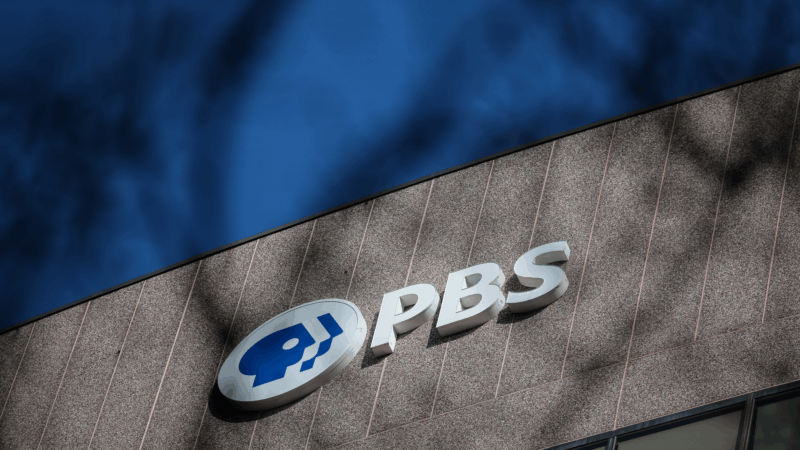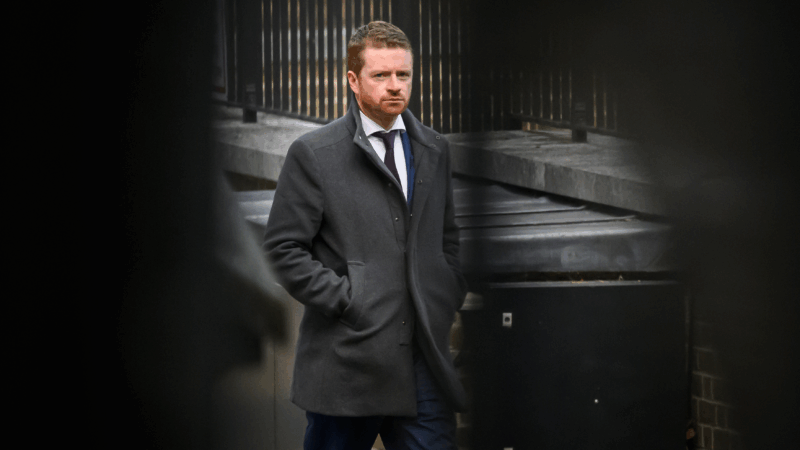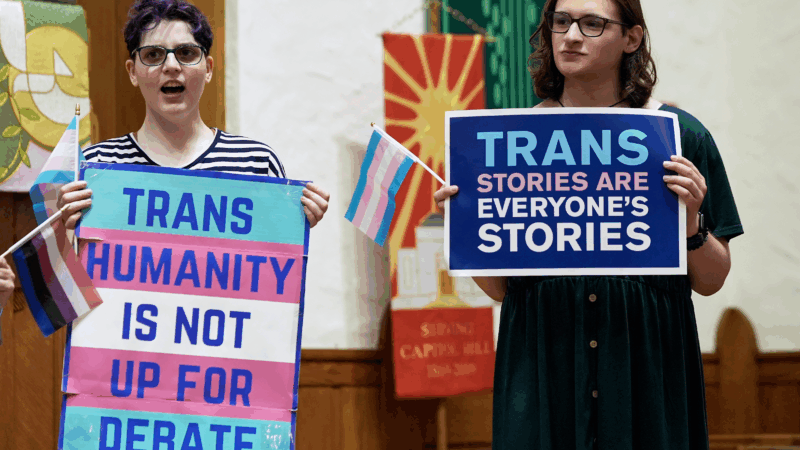PBS cuts 15% of jobs in wake of federal funding cut
PBS’s chief executive told public television officials Thursday that it was cutting about 15 percent of its jobs due to the move by Republicans in Congress to eliminate all federal funding for public broadcasting starting on Oct. 1.
Thirty-four PBS staffers were notified Thursday that their positions were being cut. Taken with the loss of a longstanding federal grant for an educational initiative earlier this summer, and the elimination of about three dozen other vacant positions, PBS will have lost more than 100 jobs in all.
PBS Chief Executive Paula Kerger said the system is taking a 21 percent hit in revenues.
“Over the last weeks, we have been working through how best to manage the impact of loss of federal funding,” Kerger wrote in a memo to station managers shared with NPR News. “Just like every single public media organization in the country, we are being forced to make hard choices.”
That result of the federal cuts from the Congressional rescission – or clawback – of planned expenditures of $1.1 billion over two years on public media and the decision of the Trump administration to kill a major grant from the U.S. Education Department.
“While we have seen good progress from our Foundation,” Kerger wrote, “including a significant grant from a major donor to help support the NewsHour and Kids content, we recognized that we need to make significant changes in our staffing and operations.”
She said that all facets of PBS would be affected, but that other steps had been taken first, such as cutting travel and merit pay evaluations.
PBS and PBS stations on average received 15 percent of their annual finances from the Corporation from Public Broadcasting. (PBS does not own any stations.) The not-for-profit corporation funneled federal funds to public television and radio stations as well as PBS and, to a lesser extent, NPR.
Some public media stations, including KQED in San Francisco and GBH in Boston, have embarked on their own rounds of layoffs in recent months.
NPR’s CEO, Katherine Maher, has said she will reduce the network’s budget by $8 million to offer savings to public stations most affected by the cuts. It is unlikely that that represents the full financial effect of the policy shift for the radio network.
In an appearance on the CBS Late Show, Maher told host Stephen Colbert that an estimated 70 to 80 of NPR’s 246 member stations could have to shut down.
NPR receives 1 to 2 percent of its annual funds from the CPB, which announced it will shut its doors at the end of this month. Public radio stations, on average, typically receive about 10 percent of their revenues from the CPB, and pay NPR for the right to broadcast its programs.
For some stations, particularly those serving rural and Native American audiences, the reliance on the federal largesse has been far greater.
Disclosure: This story was written and reported by NPR media correspondent David Folkenflik and edited by Managing Editor Gerry Holmes. Under NPR’s protocol for covering itself, no news executive or corporate official reviewed the story before it was posted publicly.
U.K. leader’s chief of staff quits over hiring of Epstein friend as U.S. ambassador
British Prime Minister Keir Starmer's chief of staff resigned Sunday over the furor surrounding the appointment of Peter Mandelson as U.K. ambassador to the U.S. despite his ties to Jeffrey Epstein.
Trump administration lauds plastic surgeons’ statement on trans surgery for minors
A patient who came to regret the top surgery she got as a teen won a $2 million malpractice suit. Then, the American Society of Plastic Surgeons clarified its position that surgery is not recommended for transgender minors.
Sunday Puzzle: -IUM Pandemonium
NPR's Ayesha Rascoe plays the puzzle with KPBS listener Anthony Baio and Weekend Edition Puzzlemaster Will Shortz.
Thailand counts votes in early election with 3 main parties vying for power
Vote counting was underway in Thailand's early general election on Sunday, seen as a three-way race among competing visions of progressive, populist and old-fashioned patronage politics.
US ski star Lindsey Vonn crashes in Olympic downhill race
In an explosive crash near the top of the downhill course in Cortina, Vonn landed a jump perpendicular to the slope and tumbled to a stop shortly below.
For many U.S. Olympic athletes, Italy feels like home turf
Many spent their careers training on the mountains they'll be competing on at the Winter Games. Lindsey Vonn wanted to stage a comeback on these slopes and Jessie Diggins won her first World Cup there.








